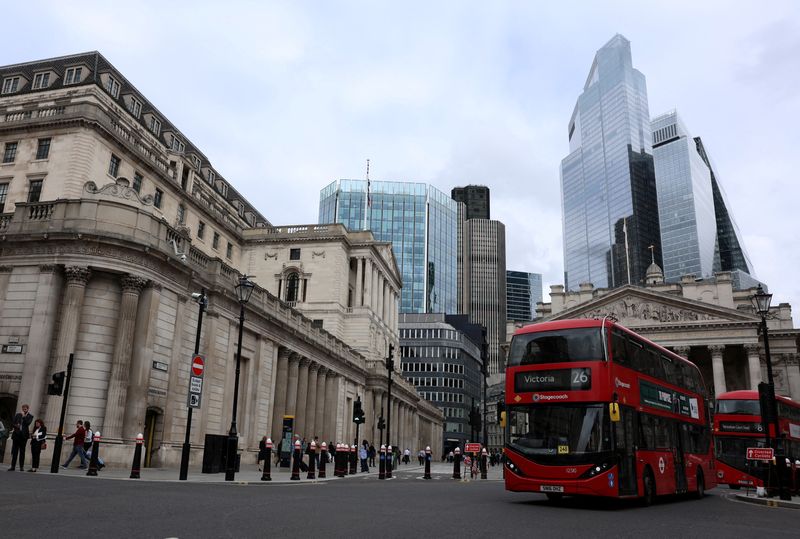[ad_1]
LONDON (Reuters) – The Bank of England warned on Friday that higher trade barriers could hit global growth and feed uncertainty about inflation, potentially causing volatility in financial markets.
Without specifically referring to the victory of Donald Trump in the U.S. presidential election, the BoE said the financial system could also be hit by disruption to cross-border capital flows and a reduced ability to diversify risk.
“A reduction in the degree of international policy cooperation could hinder progress by authorities in improving the resilience of the financial system and its ability to absorb future shocks,” the BoE said in a half-yearly report on the financial system.
While UK households, businesses and banks appeared to be in good shape, the country’s financial sector faced risks that were “particularly relevant” given the openness of the UK economy.
Other threats included high levels of public debt in many economies around the world.
“Uncertainty around, and risks to, the outlook have increased,” the report said.
The BoE said it continued to judge that valuations and risk premia in financial markets were “vulnerable to a sharp correction” due to the risks to growth and inflation and uncertainty about interest rates.
“Such a correction could be amplified by long-standing vulnerabilities in market-based finance” and could push up borrowing costs for UK households and businesses, it warned.
The BoE said its latest tests of the resilience of UK banks
showed they were well capitalised with high levels of liquidity.
Going forward, the central bank planned to carry out full stress tests once every two years starting in 2025, reducing the administrative strain on lenders and allowing the BoE to focus on other potential financial risks.
Less detailed desk-based stress tests would be conducted by the BoE, when needed, in the intervening years.
The BoE held its countercyclical capital buffer (CCyB), or ‘rainy day’ capital requirement for banks that can be drawn on in stressed times, at its neutral setting of 2%.
(Reporting by William Schomberg, Lawrence White and Suban Abdulla)
[ad_2]
Source link

